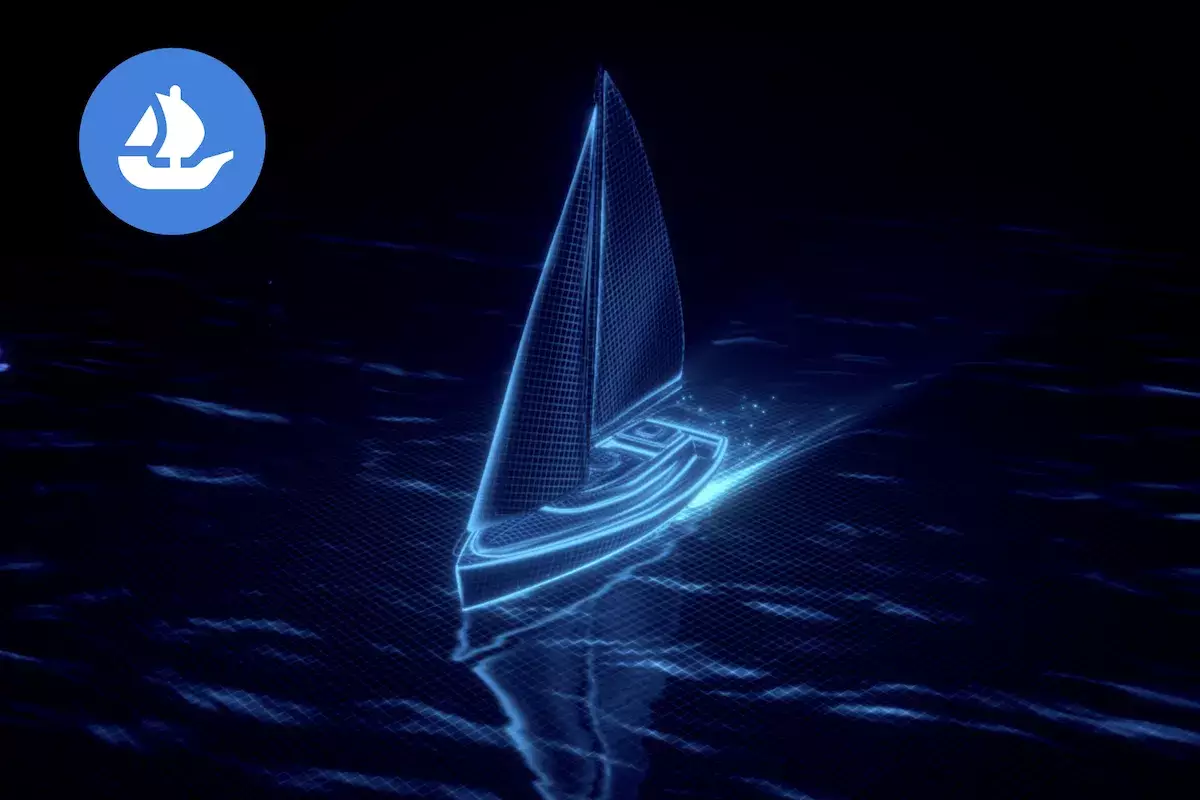In the rapidly evolving world of non-fungible tokens (NFTs), OpenSea has been a prominent name, often synonymous with the booming NFT marketplace. Historically, OpenSea dominated the landscape, capturing a staggering 90% of the trading volume. However, as the NFT environment becomes increasingly competitive, the platform is no longer the undisputed champion. Enter the game-changing OS2 platform, currently in private beta, which has not only generated excitement but also considerable controversy within the NFT community. This article will delve into the significance of OS2, the unique benefits for Gemesis NFT holders, the novel XP system, and the ongoing speculations about a potential token airdrop.
OpenSea’s ascendancy coincided with the initial explosion of NFTs when the broader public was still largely unaware of concepts like “digital ownership.” The platform succeeded due to its user-friendly interface that streamlined the processes of listing, discovering, and trading digital collectibles. Despite enjoying a dominant market share just a year ago, the influx of new platforms and innovative features has made it imperative for OpenSea to adapt or risk losing its market presence.
The emergence of strong competitors has forced OpenSea to reassess its strategies. In response to the decline in its trading volume and market share, OpenSea acquired the Gem NFT platform, renaming it OpenSea Pro. This strategic move signalled a turning point and displayed its commitment to innovation. However, while many welcomed these changes, they also raised tough questions about fairness and access for longtime users.
A critical aspect of the OS2 launch involves the Gemesis NFTs, which were distributed as part of OpenSea’s initiative to foster loyalty among its users. After acquiring the Gem platform, OpenSea took a snapshot of nearly 50,000 wallets holding Gemesis NFTs, granting these users immediate access to the OS2 private beta. This strategy has, understandably, sparked a wave of frustration among users with significant trading histories who find themselves excluded due to the NFT ownership requirement.
Critics argue that this move is inherently elitist, privileging those who received Gemesis NFTs over other dedicated users who have long supported the platform. While OpenSea has assured its base that loyal supporters will not be overlooked, it remains to be seen how effectively they will address the grievances of those feeling marginalized by the current access policy.
A novel feature of OS2 is the implementation of an Experience Points (XP) system. Within this framework, users earn XP for various actions, such as listing NFTs, making offers, or providing feedback. The intention behind this design is to incentivize user engagement and participation in the OS2 ecosystem. By mimicking strategies used successfully by competing platforms like Blur, OpenSea aims to reclaim its user base while simultaneously attracting newcomers.
The challenge lies in the question of whether these XP rewards could translate into actual currencies or tokens of value. Unlike many of its competitors, OpenSea has not released its own token and has tread carefully within the unpredictable regulatory waters of the cryptocurrency landscape. By keeping its options open regarding the XP system conversion into something more tangible, OpenSea stands poised between innovation and regulation, hoping to capitalize on the excitement it has generated.
The NFT landscape continues to transform at lightning speed, with new platforms like Magic Eden making their mark by offering token rewards. The challenges facing OpenSea are indicative of a broader issue in the crypto industry: the need for constant evolution to keep existing users engaged while attracting new ones. Layoffs within OpenSea, aimed at reallocating resources towards the OS2 launch, highlight the urgency of their situation.
As the private beta progresses, user feedback will be invaluable in shaping the OS2 experience. OpenSea faces the dual obligation of not only revitalizing its platform but also ensuring it retains the trust and loyalty of its long-standing users even amidst an undeniable shift in its community dynamics.
The future of OS2 remains uncertain, and its success could redefine how users interact within OpenSea and the wider NFT space. The anticipation surrounding potential airdrops, particularly for the Gemesis holders, continues to feed speculation and excitement across social media platforms.
For NFT enthusiasts and collectors alike, the launch of OS2 is a wake-up call to remain vigilant and engaged. As OpenSea seeks to establish a fresh footing in a crowded marketplace, the balance it strikes between rewarding new users and honoring the loyalty of the veterans will have lasting implications. The coming months could well determine whether OpenSea sustains its legacy or becomes yet another footnote in the annals of the NFT revolution.

